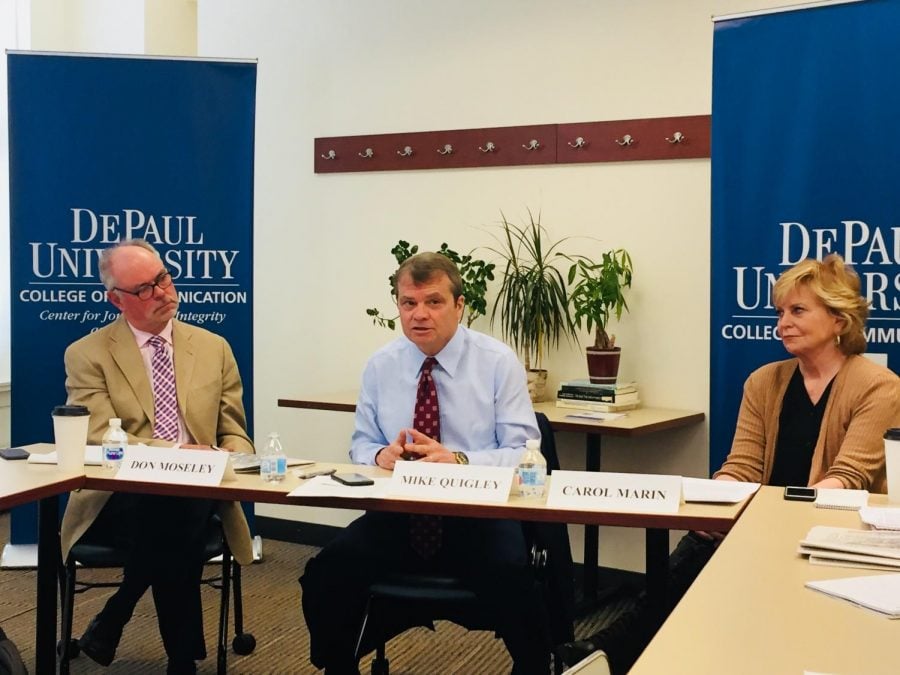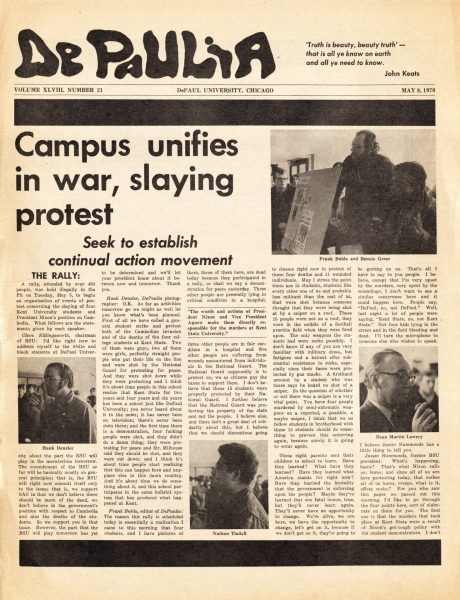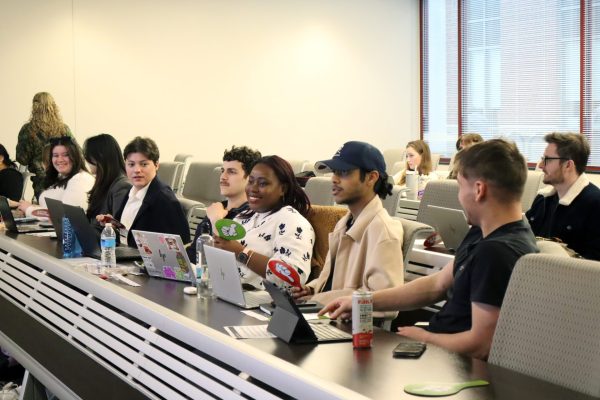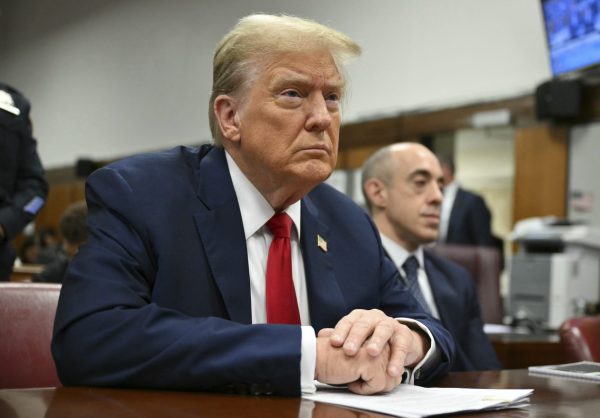Rep. Mike Quigley talks Russia, fake news with DePaul students
Congressman Quigley talks about all things journalism with DePaul’s Advanced Reporting students. (Brian Pearlman | The DePaulia)
“I never imagined that I, in D.C., would tell journalists that their iPhones and their emails aren’t safe … You’re under attack. We’re under attack.”
That’s according to Democratic Rep. Mike Quigley, who represents over 700,000 people in the 5th Congressional District – a position he’s held since 2009. The district includes the North side of Chicago as well as suburbs to the north and west of the city such as Norridge, Franklin Park and Oak Brook Terrace. He is also a member of the House Intelligence Committee, where he has made headlines for his highly critical remarks regarding the Trump administration and what he has seen to be a lackluster response from Republicans regarding the Russia probe.
He made the comments during a small event for DePaul student media and members of Carol Marin and Don Moseley’s Advanced Reporting class on Tuesday, April 24. Topics of discussion during the moderated event included his concerns about Russian interference in the 2016 presidential election, why he uses burner phones whenever he can and his thoughts on political gerrymandering in Illinois.
“When the Russia investigation got very heated, I told a lot of journalists to not trust any of these things. Don’t call me on an iPhone that you want to protect, don’t put their name in an email … that’s a different world, folks, and you have to be aware of it,” he said, referring to Russia’s government and intelligence apparatuses.
Asked by Marin how he handles sensitive conversations with reporters and key officials, without the use of iPhones and emails, Quigley responded that he prefers to speak in person or use “the dumbest technology I can find,” which he said is often a flip phone.
“I occasionally will borrow a phone and pay that person for it,” he said, noting that when he travels to intel meetings, he and other members of congress receive burner phones that are checked for hacks at the end of the meeting before being thrown away.
With regards to so-called “fake news,” Quigley said the Russians are skilled at seeding disinformation “to attack journalists’ integrity.” He spoke specifically of an incident roughly 10 months ago, where he said he and other members of Congress were told a story by an elected official in Europe that “fit right into the mode of the (Steele) dossier.” Although it ended up being untrue, he said it nonetheless impressed on him the importance of intense vetting before releasing a story to the media.
“There’s really good stories that have been waiting for a long time, because they’re not sure,” he said. “I think we need to understand just how historic this is and how important the press has become.”
Quigley mentioned his fact-finding trip to Cypress earlier this month, where he looked into money laundering. Former Trump campaign manager Paul Manafort and his business partner Richard Gates were indicted last year for money laundering and other financial crimes; Gates pleaded guilty in February.
“Watergate was a burglary, followed by a conspiracy, followed by a coverup … if that was algebra, this is advanced calculus,” he said.
Towards the end of the event, Marin asked Quigley a question written by a student in her class: “Your district is one of the most gerrymandered districts in the state. Would you sacrifice your own seat to ensure a fairer drawing of district lines?”
“No. I think you put it at risk,” Quigley quickly responded, adding that the General Assembly draws the district maps in Illinois.
“Is it fair to say Mike Madigan draws your maps?” asked Marin, to chuckles from the room.
Quigley refrained from criticizing the longtime Speaker of the House, saying only that Madigan is more focused on the General Assembly and the House of Representatives rather than Congress, so he has consequently left drawing district maps to the senate.
Quigley went on to admit that many districts in Illinois are gerrymandered, but he traced the origin of the practice to Republicans about a decade ago, who “were smart to focus on general assemblies across the country … that’s why they won the general assemblies and they drew the maps,” while Democrats were instead focused on winning seats in Congress.
“You don’t want to unilaterally disarm,” he said.
Finally, Quigley teased several Illinois connections to look out for as the Russia investigation continues, including former Trump campaign foreign policy advisor and DePaul alum George Papadopoulos going before the House Intelligence Committee – assuming the house flips to the Democrats in January (“Papadopoulos was never before the committee – it’s a sin,” he said).
Quigley also mentioned an interest in obtaining information from the estate of deceased Illinois Republican operative Peter Smith, who allegedly illegally obtained emails from Hillary Clinton’s computer server before taking his own life in May 2017 and embattled former Trump lawyer Michael Cohen, who has ties to a cab company in Chicago.
“It is an incredibly complicated web that has been spun for a really long time,” he said. “There’s a lot of journalistic prizes that’ll be won as we move along.”











